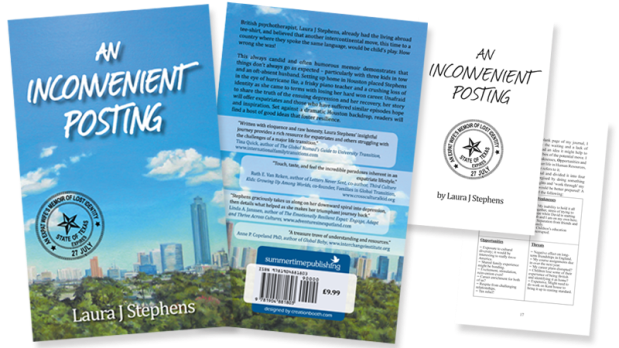Its been a strange year. People are wandering around Europe, weary and desperate, in a way previously unseen. Democracy was served here in the form of Britain voting to leave the European Union, and sadly, the two events are linked.
The PM fell on his sword for asking the Brexit question and the UK got its second female prime minster. Mrs May reminds me of an austere, yet reliable head teacher. Let us hope she can keep the class in order while overseeing the school.
Closer to home, I have recently experienced bereavement. I found this intensely personal, yet commonplace experience, unlike anything else. Emotions come and go; sometimes they bubble up … It has only been weeks, so I am still adjusting.
It struck me recently that myself and others have likened the process of grief to other experiences of loss, such as moving from country to country. There are some similarities in the nature of the cycle; the ebb and flow of shock, denial and with any luck, acceptance. The difference of losing someone you love is the knowledge they are gone forever. If only you could book a flight to go and see them occasionally or even just once more … It’s a shock to find you have no choice, they are out of reach and the timing and nature of their departure was beyond your control.
In the case of an elderly parent, like mine, you may bring some influence to bare on their final days, endeavouring to give them as good an ‘ending’ as possible. I am thankful to have had that opportunity to be there, and I hope, help a little. I found death profound, much like birth it involves a breath; the first or the last.
Within the nougat of life there have been blessings along with the challenges; some things have gone as hoped. A highlight was a restorative break in Sivota, Greece. A holiday was never more welcome, and the breath taking view from the optimistically named ‘retreat’ (think minestrone of kids yelping in pool) provided a fine place to reflect and a chance to become institutionalised, for all the best reasons.
At the beginning of 2016, I decided to write a novel. The characters, plot line and themes had been swirling in my head for more than a year. Building work on my house had been the excuse for not getting started. In January, I went on a Guardian Master Class course, run by author, Jill Dawson and put procrastination to one side. A Saturday spent with other souls compelled to write, was the catalyst I needed to open my PC and type Chapter 1.
This month I have completed a first draft of the manuscript. Tada! Writing a novel; the act of telling a story, has been utterly absorbing and at times, a welcome diversion. There is a need for discipline and much time sacrificed (obviously) but I’ve found living with my characters; directing their lives – watching them develop as they struggle, discover secrets, fall in love, hear them speak and so on, has been fun.
Fingers are crossed for modest success, though I’m not quite ready to launch my novel at the world yet. Apparently Jeffrey Archer goes through his manuscript fourteen times before he sends it to his agent. Why fourteen? I’m not sure. But I’ve got the message …
All of the above has kept me distracted from writing my blog, although I have still enjoyed reading other people’s! Is it a cliché to say, I haven’t been in the right place? Sometimes there is a limit to how many areas we can direct our energies; work, kids, husbands, elderly relatives – did I mention the cats … I imagine you have your own list.
Am I trying to justify my absence from here? Probably …
I do hope this finds you well.
 Sevenoaks Bookshop
Sevenoaks Bookshop




